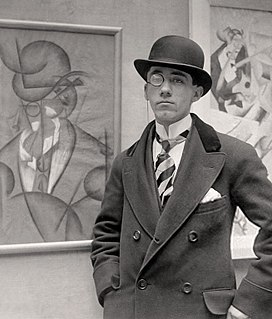A Quote by Marilyn Strathern
In a world where concepts are so often deployed in an ad hoc fashion, half explored before being displaced by others, it is immensely refreshing to encounter such serious and sustained attention to the building blocks of inquiry—and to the responsibilities thereby incurred. Designs on the Contemporary is a work of profound importance to the philosophy of anthropology. In conjunction with Rabinow’s other works, it creates a nonpareil, a configuration of thought with no equal.
Quote Topics
Ad
Anthropology
Attention
Before
Being
Blocks
Building
Building Blocks
Concepts
Configuration
Conjunction
Contemporary
Creates
Deployed
Designs
Displaced
Encounter
Equal
Explored
Fashion
Half
Immensely
Importance
Inquiry
Often
Other
Others
Philosophy
Profound
Refreshing
Responsibilities
Serious
Sustained
Thereby
Thought
Work
Works
World
Related Quotes
Before my encounter with Thomist philosophy through Maritain, I had almost reached the same conclusions through the logical development of my work, intuition and thought, but what a great sense of joy I felt upon discovering, in Maritain, the confirmation of certain thought patterns, certain ways of clarifying these to myself and to others.
Though Israel may often be deserving of criticism, what is missing is the comparable criticism of equal or greater violations by other countries and other groups. This constant, often legitimate criticism of Israel for every one of its deviations, when coupled with the absence of legitimate criticism of others, creates the impression currently prevalent on university campuses and in the press that Israel is among the worst human rights violators in the world....it is not true, but if it is repeated often enough, it takes on a reality of its own.
Therefore, a grotesque account of a period some thousands of years ago is taken seriously though it be built by piling special assumptions on special assumptions, ad hoc hypothesis [invented for a purpose] on ad hoc hypothesis, and tearing apart the fabric of science whenever it appears convenient. The result is a fantasia which is neither history nor science.
I view all art as an effort to translate brain concepts into a work. These brain concepts are synthetic ones - the result of many experiences. But a single work of art, or even a series of works, more often than not cannot translate these synthetic concepts adequately. Yves Saint Laurent once said that he suffered greatly when creating. He is not alone in that. Most artists do the same and say as much.
I'm a pluralist about perspectives on literature. There seem to me to be all sorts of illuminating ways of responding to major literary works, some of them paying considerable attention to context, others applying various theoretical ideas, yet others focusing on details of language, or linking the work to the author's life, or connecting it with other works.
I doubt whether there is any subject in the world of equal importance that has received so little serious and articulate consideration as the economic status of the family - of its members in relation to each other and of the whole unit in relation to the other units of which the community is made up.
Listening is the oldest and perhaps the most powerful tool of healing. It is often through the quality of our listening and not the wisdom of our words that we are able to effect the most profound changes in the people around us. When we listen, we offer with our attention an opportunity for wholeness. Our listening creates sanctuary for the homeless parts within the other person. That which has been denied, unloved, devalued by themselves and others. That which is hidden.


































